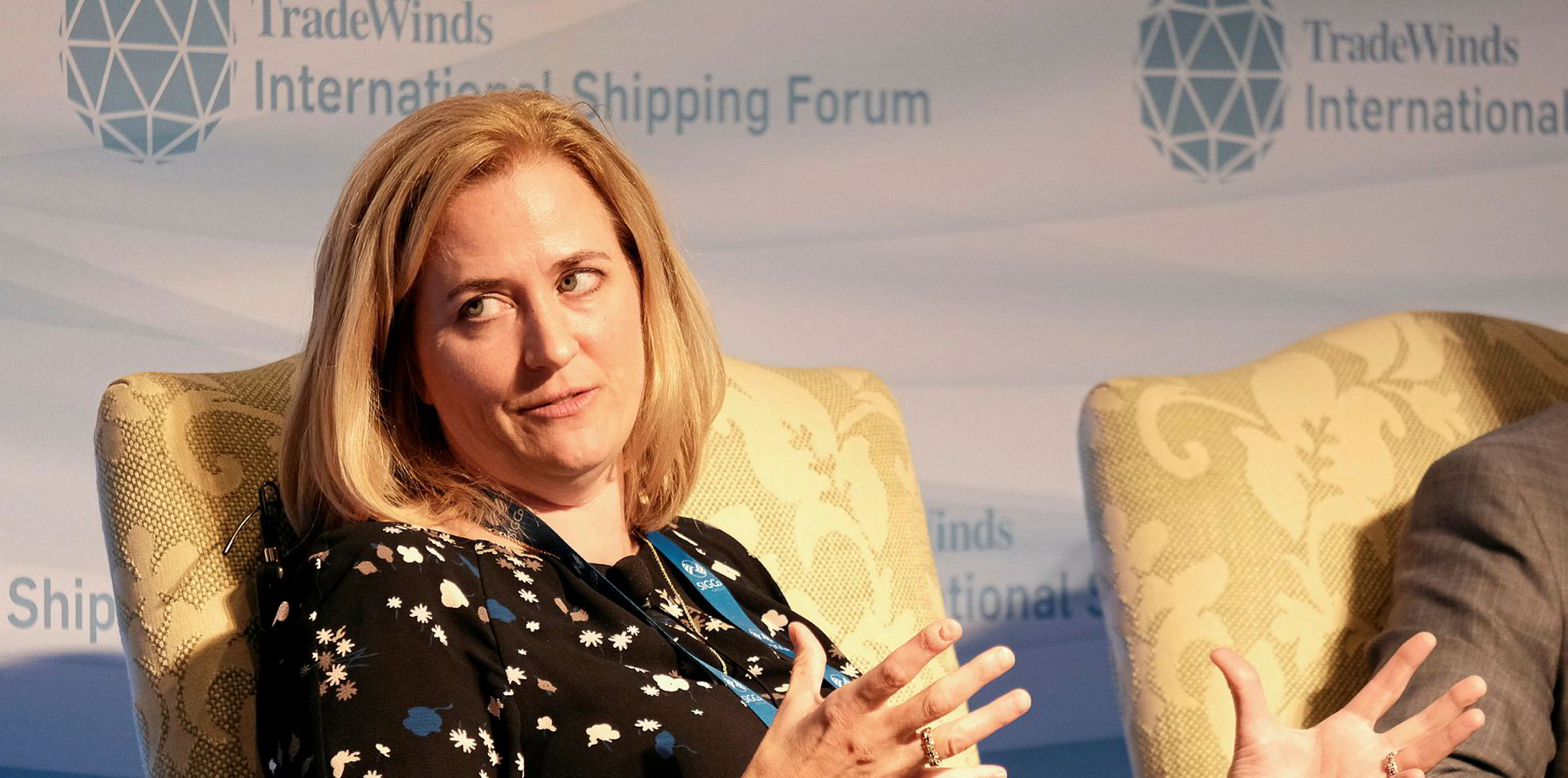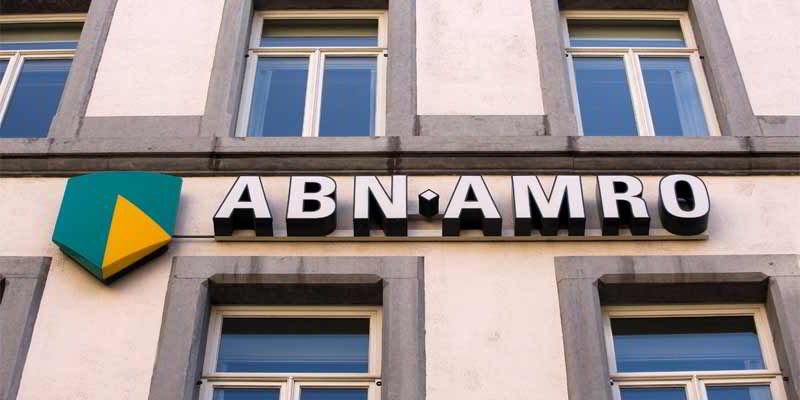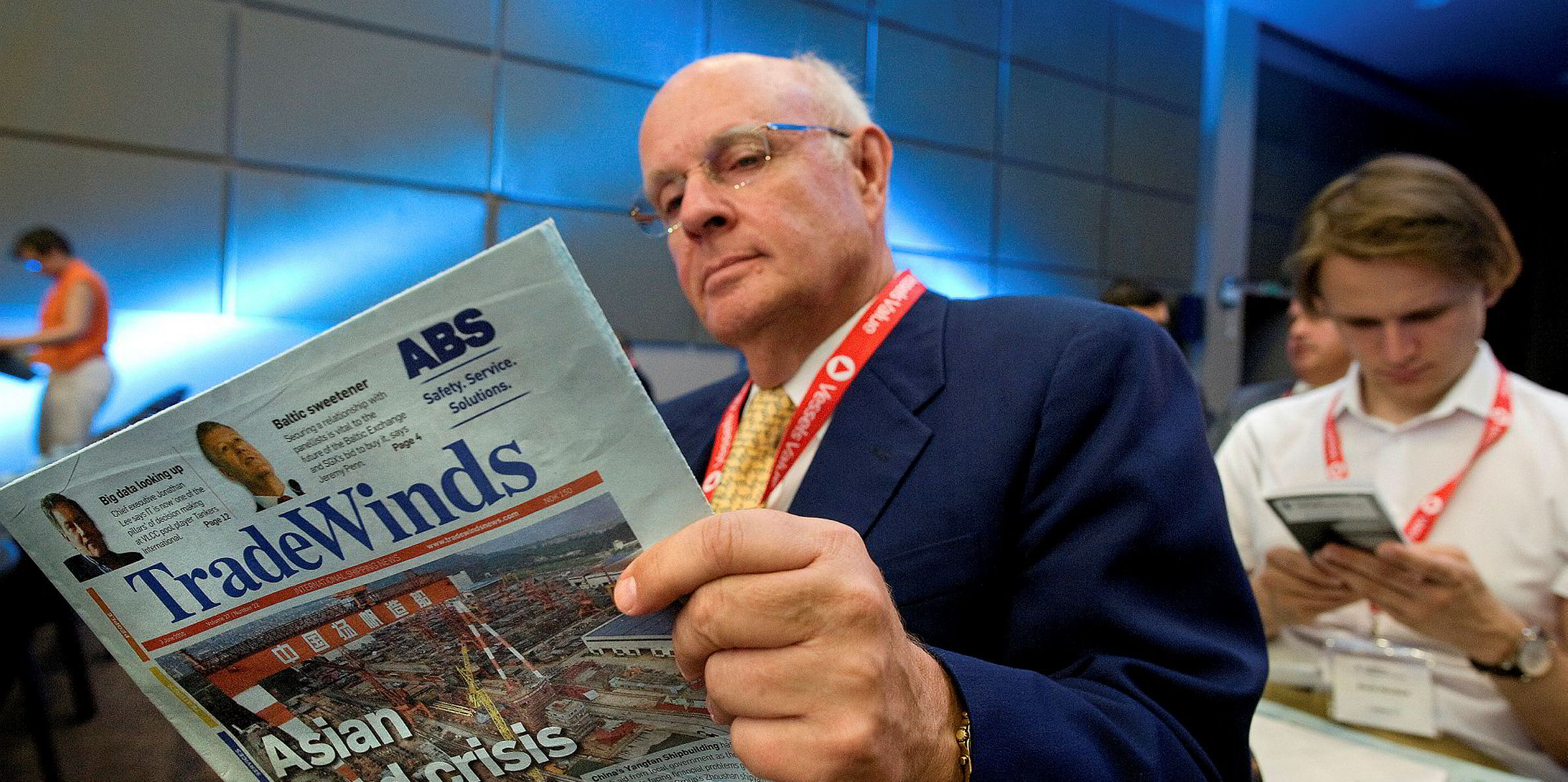Banker Joep Gorgels is upbeat about ABN Amro’s future in ship finance after the doors shut on its Asian and US shipping desks in 2022.
He believes the Dutch bank can focus on its European business, which makes up the lion’s share of its €9bn ($10.6bn) shipping portfolio.
“We will focus on winding down the portfolios and the teams in New York and Singapore,” said Gorgels, who has headed ABN Amro’s global transportation and logistics division for two years.
“And that will be an orderly wind-down of our credit portfolio over the next couple of years.”
Gorgels contrasted the strategy with rival European banks that have withdrawn completely from ship finance.
“We’re not pulling out of shipping at all,” he said. “It remains an important pan-European sector to ABN Amro.”
He said the proof is that ship-finance teams remain in Amsterdam, Athens and Oslo: “Those three maritime hubs are very important to shipping and logistics, and very important to us historically and the future.”
TradeWinds reported last week that ABM Amro is pulling its shipping desk back to core markets after a review of its commodity and trade desks.
Profitability under pressure
The shift in strategy is expected to affect 800 people, including around 150 in Amsterdam, with the rest in Asia-Pacific and the Americas.
It is designed to maintain profitability of the commodities and trade desk, which includes shipping.
“Because [of] the cyclicality of these sectors, our profitability was under pressure,” spokesman Arien Bikker said. “We did try [to] intervene in mid-2018 to improve profitability, but it wasn’t enough.”
If you’re [a] pure American shipping company, that [is] probably not where our capital time and resources go to. But if you have your shipping activity in France, Copenhagen, Oslo, Athens or Amsterdam, that’s right in the middle of our focus area
Joep Gorgels
ABN Amro will not reveal how its sizeable shipping portfolio will develop in the coming years and whether it will shrink significantly. But Gorgels remains “positive” about the prospects of doing business with European shipping companies.
“I think there are a lot of good companies out there in Europe,” he said. “They have fantastic management teams that operate assets on a global scale. You can really find good-quality investor opportunities from a debt or equity perspective in Europe.”
The Norwegian market — where Gorgels spent five years as country manager — retains a team of 15 people. The Oslo office has a strong relationship with local owners that the bank is keen to develop further, he said.
Similar support will be extended to the Athens shipping desk, which employs 11 staff members, as well as around a dozen employees dedicated to shipping in Amsterdam.
ABN Amro was not exposed to the bad debt of the German market, but is eyeing potential business there too.
“I think the companies that come out of this down cycle also in Germany are interesting clients or prospects for us,” Gorgels said.
The flip side of the strategy is that no new business will come from non-Europe-based owners.
Still a big player
“For existing exposure and existing clients in Asia and America, we cannot do new transactions,” he said.
“And indeed, we will take our time — a couple of years — to orderly wind down those portfolios. That is happening or will happen in various ways.”
Gorgels played down the extent to which the global retrenchment will hit owners.
“It depends where you sit," he said. "If you’re [a] pure American shipping company, that [is] probably not where our capital time and resources go to.
“But if you have your shipping activity in France, Copenhagen, Oslo, Athens or Amsterdam, that’s right in the middle of our focus area.
“We will stay very large in shipping, but only limited to the European-based clients.”
The bank aims to remain a player in the main shipping sectors, including tankers, dry bulk and containers. The exception is the cruise sector, where it does not provide financing.
Gorgels said ABN Amro will also continue to pioneer “green” ship-finance initiatives, such as linking sustainability clauses to loan documentation.
But it will not compete against private equity players and hedge funds that have entered European ship finance in the past decade.
“We play in a different area to the newcomers,” he said. “We are more after the larger shipping and intermodal companies in Europe. That’s what we will continue to do.
“For the good transactions, we will be there for the new and existing customers in Europe.”








